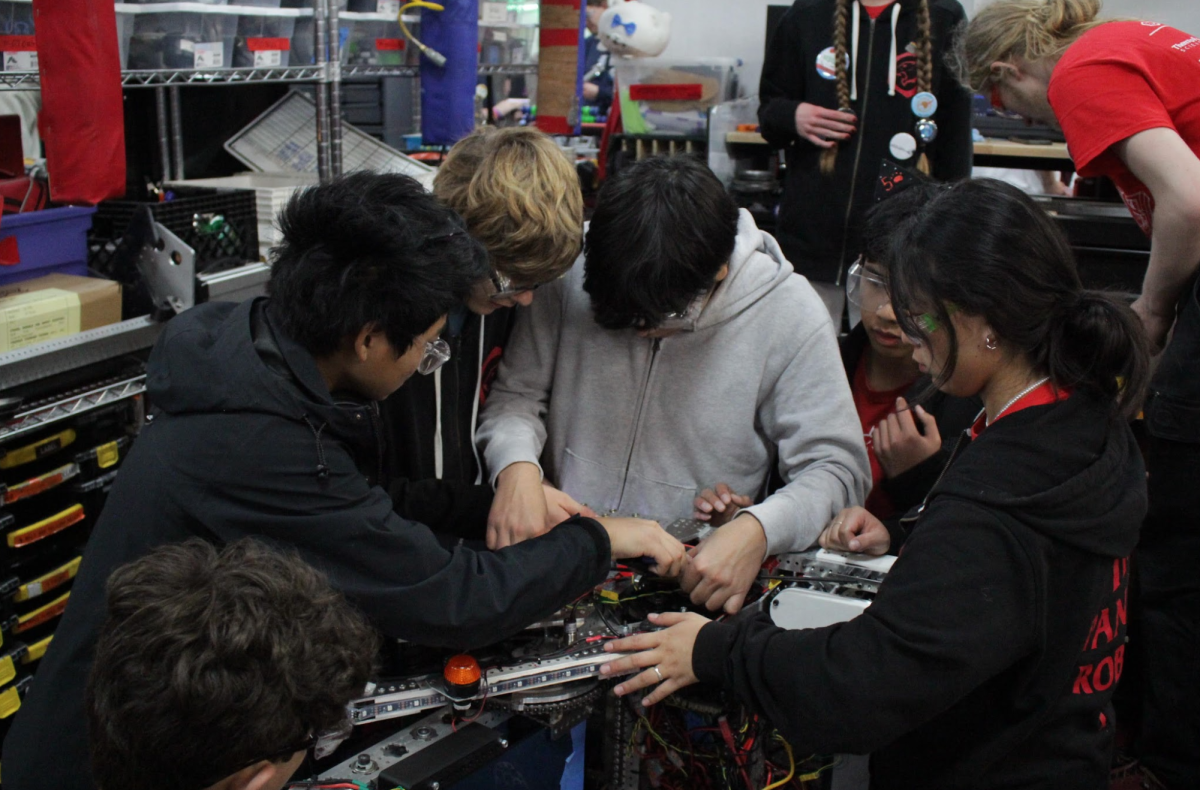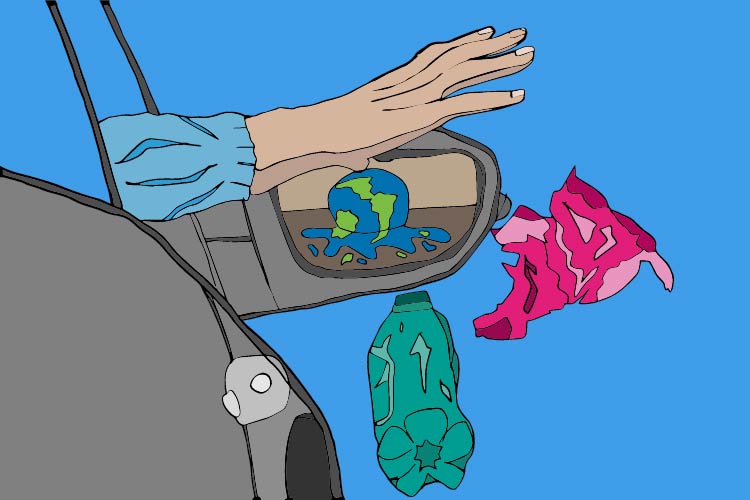Should we blame our grandparents for triggering climate change?
Like many technologies, gasoline and air conditioning promised extensive benefits to our society despite — or perhaps because of — their destructive effects.
February 20, 2023
On California highways, it’s hard to miss the warning signs of climate change. They are big, with bold black text on a white backdrop. “$1000 fine for littering,” they say, like an angry teacher waving a detention slip, reminding the millions of drivers in the state to be mindful of their environment.
You don’t need to look too far back in the years, however, to find a time where people would casually throw cigarettes, cans and other trash out of their car window, without even considering the potential damages their actions could cause to their surroundings. To us, committing these actions seems unthinkable, but our grandparents would hardly bat an eye.
That generation’s careless attitude towards the environment didn’t stop there, however. Throughout the 1960s, numerous products were exploited without concern for the various environmental consequences. The use of air conditioning, plastic and gasoline all increased exponentially over those years, playing a significant role in triggering the climate change crisis we are currently facing.
Consider gasoline, for instance. Although the product was invented in the late 19th century, it only became a household staple during the ‘60s, when families began to evolve toward car dependency. This proved to be environmentally harmful since using gasoline to power cars emits enormous amounts of greenhouse gasses, which trap solar energy and boost Earth’s temperature. Ultimately, this contributes to global warming, a symptom of climate change.
Air conditioning is another example of a product our grandparents popularized that came with extreme environmental drawbacks. In order to function, air conditioning systems require large amounts of energy in the form of electricity. Once again, the process of producing electricity releases greenhouse gasses into the atmosphere. So those nice, air-conditioned malls — in many areas a necessity to survive during scorching hot summers — have been damaging our environment.
Like many technologies, gasoline and air conditioning promised extensive benefits to our society despite — or perhaps because of — their destructive effects.
However, there’s a reason why we don’t entirely hold our grandparents’ generation responsible for climate change. During this period, the climate change issue was barely ever brought up. When our grandparents and their peers used damaging products, they were most likely unaware of the environmental repercussions of their actions.
To put things in perspective, concern for the environment didn’t really take off until the release of the documentary “An Inconvenient Truth” in 2006 by former Vice President Al Gore. The movie, which won two Academy Awards, is credited for playing a significant role in bringing the climate catastrophe to the public’s notice.
While people were oblivious about climate change back then, the dire global warming situation is known worldwide today. Whether it’s the young Swedish climate advocate Greta Thunberg giving inspirational speeches about the threat of inaction, international summits and resolutions or simply neighborhood charities organizing beach clean-up projects, we now have our heads wrapped around this issue.
Although our generation might be much more conscious about global warming, it doesn’t necessarily mean that we are making all the right decisions. For instance, the idea of replacing gasoline powered cars with electric cars might seem like a brilliant solution towards reducing greenhouse gas emissions. What is often not mentioned, however, is that the creation of the electricity often requires the burning of fuel, which, as we all know, is extremely harmful to our environment. Although it’s not gasoline, it’s difficult to measure the improvement made when the production of electricity circles back to burning fuels.
But even though we might not eliminate fossil fuel emissions or stop climate change in the next 30 years, we can still challenge ourselves to become more conscious about our role in the climate crisis. Unlike our grandparents’ generation, each and every one of us can start by taking responsibility for climate change.





![WASC looks for more than the basic California State standards. According to chairperson Mike Woo, “As new rules and new concerns come up through society, [WASC] look[s] is the school doing something about that. Like the biggest trend post-COVID is mental wellness. So is your school doing something to address the mental health of the students? Along with are they still doing the proper academics?”](https://theburlingameb.org/wp-content/uploads/2024/03/IMG_3401-1200x1200.png)























![“For me personally, I want [others] to see the music program as a strong union because we can really bring out the life of our school,” Vega said. “We need music, you know? Otherwise, things would be really silent and dead.”](https://theburlingameb.org/wp-content/uploads/2024/03/unnamed-1200x801.jpeg)









